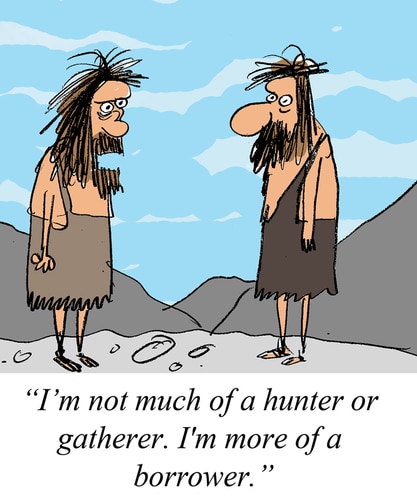
What Was the Composition of the Hunter-Gatherer Primitive Diets?
According to a study published in the American Journal of Clinical Nutrition, hunter-gatherers were mostly carnivorous with more than 85% of their macronutrients coming from animals that they hunted. Plant-based foods made up a smaller component of the diet of hunter-gatherers. The type of plant foods they ate most commonly were nuts, seeds and root vegetables rather than leafy vegetables. In this study, researchers estimate they got between 19 and 35% of their calories from protein, 20 to 40% from carbs and 28 to 58% from fats.
As you can see, primitive diets were higher in fat and lower in carbs than modern-day Western diets. Alaskan Eskimos followed an especially low-carb diet with few fruits and vegetables due to their limited access to plant-based foods. The premise behind following a “paleo” diet is hunter-gatherer societies had a much lower incidence of chronic health problems like heart disease – but did they really?
Heart Disease in Hunter-Gatherer Societies
In a study published in the journal Lancet, researchers used imaging studies to look at 4,000-year-old mummies in four different geographical regions of the world, looking at evidence for heart disease. Surprisingly, they found pathology suggestive of heart and blood vessel disease in a significant number. In fact, 34% of the 137 mummies they looked at had either probable or confirmed atherosclerotic disease.
Even the Peruvians and Egyptians who were farmers and had access to more plant-based foods weren’t immune to heart disease. The average age of death was the early 40s, so even at a relatively young age more than a third of the mummies had evidence of heart disease based on this study.
Why Wasn’t the Paleo-Style Diet Effective?
It’s important to keep in mind that diet is only one factor that influences the risk of heart disease. We now know that inflammation inside the walls of arteries is a probable cause of stroke and heart attack. As experts in this study point out, infection was common in hunter-gatherer societies. Chronic infection can stimulate an inflammatory response that damages blood vessels and accelerates atherosclerosis, leading to heart and blood vessel disease. So, there are other explanations for the surprisingly high incidence of heart disease in these populations of primitive people.
There’s also the question of whether the saturated fat in the diets of hunter-gatherers predisposed them to heart disease. There’s no doubt that many primitive cultures ate a diet high in saturated fat due to the disproportionate amount of animal-based foods they ate.
On the other hand, don’t assume this study is the final word. It looked at a limited number of hunter-gatherers. Earlier research looked at isolated cultures that still practice a hunter-gatherer lifestyle. These studies show these people who ate a paleo-style diet had little evidence of heart disease or hypertension. In addition, a study looking at Australian aborigines showed they had a low incidence of heart disease and type 2-diabetes until they transitioned to a more Westernized diet. Plus, you have to keep in mind there’s plenty of evidence that diet and lifestyle impact the risk of heart disease.
The Bottom Line?
Due to the limited number of mummies they imaged for this study, it’s hard to draw any real conclusions about whether a paleo-style diet reduces the risk of heart disease. Chronic inflammation from infections that were so common among these populations that they may explain the findings of heart disease. Plus, there’s evidence from other research that hunter-gatherer societies have less heart disease, hypertension and type 2-diabetes. So don’t assume that diet isn’t important. It is.
References:
Am J Clin Nutr March 2000 vol. 71 no. 3 682-692.
Lancet 2013; DOI: 10.1016/S0140-6736(13)60598-X.
Clin Exp Pharmacol Physiol. 1991 Feb;18(2):85-8.
Related Articles By Cathe:
5 Surprising Facts about Heart Disease You Probably Don’t Know

